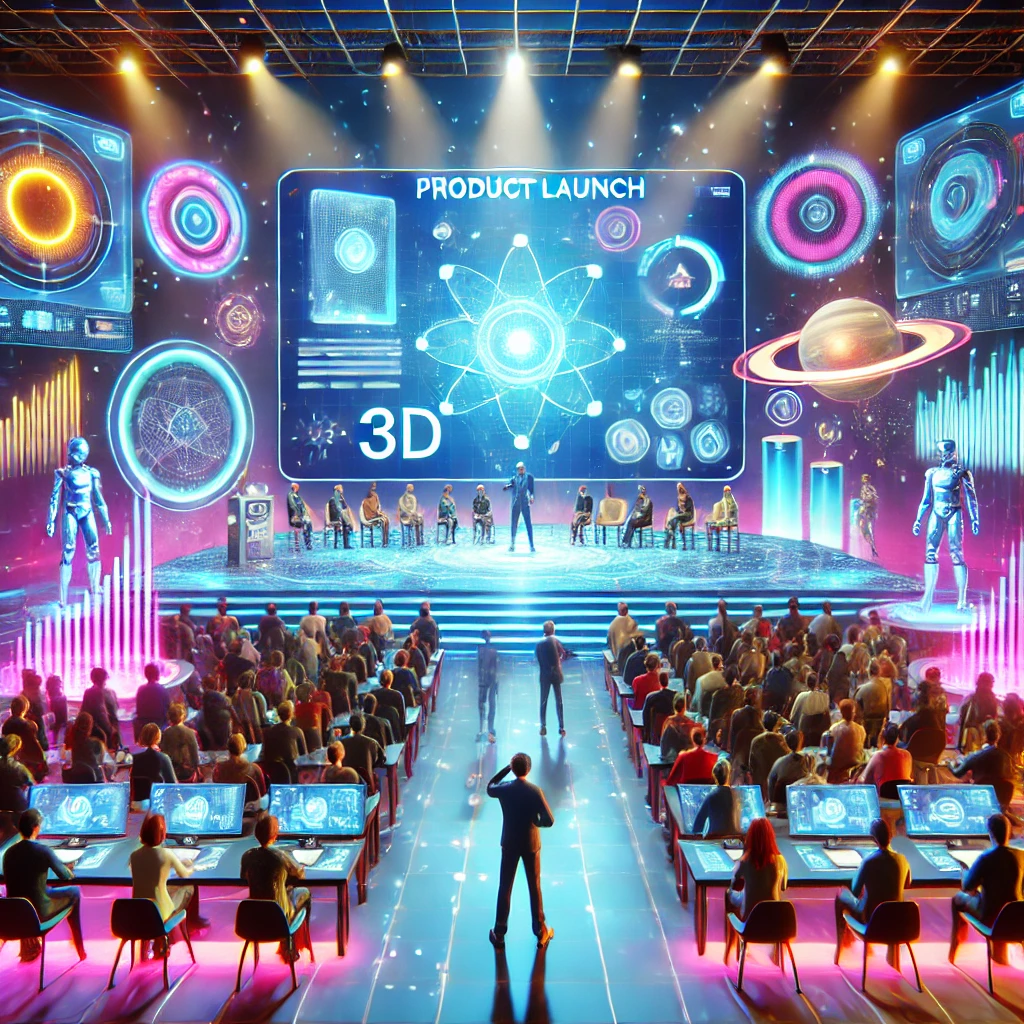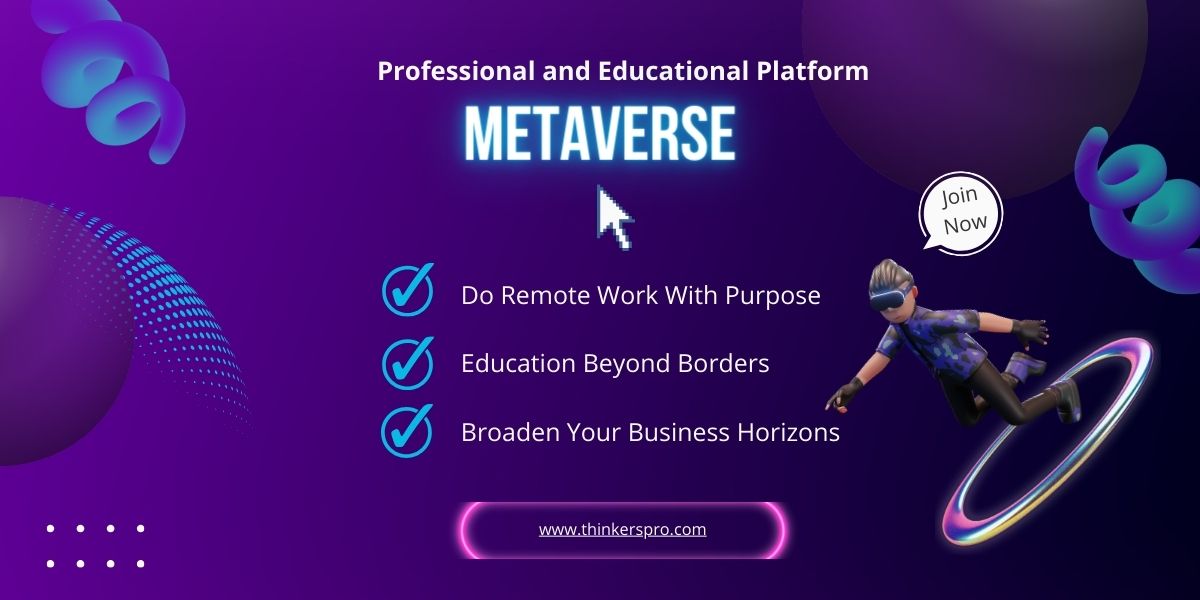Metaverse product launch events represent a groundbreaking shift in how companies unveil their new offerings. These virtual environments allow businesses to connect with their audience in immersive, interactive settings beyond the physical realm. With advancements in virtual reality (VR) and augmented reality (AR), brands can create engaging experiences that captivate potential customers and generate excitement around their products.
Understanding Metaverse Product Launch Events
In essence, a metaverse product launch event is a digital occasion where companies introduce new products within a virtual space. Participants can join from anywhere in the world, equipped with VR headsets or even standard web browsers. Events may include:
- Virtual Showrooms: Interactive spaces showcasing product features and specifications.
- Live Presentations: Speakers and influencers can present products in real time, engaging the audience directly.
- Networking Opportunities: Attendees can connect with each other and the brand, fostering community engagement.
How Metaverse Product Launch Events Work
Organizing a successful metaverse product launch event involves several key steps:
- Platform Selection: Choose a metaverse platform that suits the brand’s needs, such as Decentraland, Roblox, or VRChat.
- Event Design: Create visually appealing and functional virtual spaces aligned with the brand’s identity.
- Marketing Strategies: Promote the event through social media, email campaigns, and influencer partnerships to maximize attendance.
- Engagement Features: Include interactive elements like polls, Q&A sessions, and gamification to keep participants engaged.
By leveraging these advanced technologies, brands are not only reaching wider audiences but also enhancing customer experiences in ways traditional events cannot. As the metaverse continues to evolve, product launch events are expected to become an essential strategy in the marketing landscape.
Key Benefits of Hosting Product Launch Events in the Metaverse
The rise of the metaverse has transformed the landscape of product launch events, offering brands innovative ways to engage their audiences. As businesses seek to maximize their reach and impact, hosting events in virtual environments presents unique advantages. Here, we explore the key benefits that the metaverse offers for product launches.
1. Greater Accessibility for Global Audiences
One of the standout benefits of launching products in the metaverse is the unprecedented accessibility. Unlike traditional events, which may limit attendance based on geography, virtual events allow participants from anywhere in the world to join. This inclusivity not only broadens the potential audience but also fosters a diverse community around the brand. Users with varying interests and backgrounds can interact, learn, and provide invaluable feedback.
2. Enhanced Engagement and Interactivity
Events in the metaverse offer a range of interactive elements that are often absent in physical venues. Brands can create immersive experiences, including:
- Virtual Product Demos: Attendees can interact with products in real time, experiencing them as if they were in person.
- Gamification: Incorporating games can enhance participation, making the event fun and memorable.
- Social Spaces: Features that enable networking and chatting help foster community, allowing guests to connect beyond the event.
These engaging formats keep the audience invested and encourage deeper connections with the brand.
3. Cost-Effectiveness and Sustainability
Hosting a product launch in the metaverse can significantly reduce costs associated with physical events. Expenses such as venue rental, catering, and travel can be eliminated or minimized. Additionally, the virtual nature of these events aligns with growing sustainability trends, as they produce far less waste than traditional launches. Brands positioned as environmentally responsible can attract conscious consumers through their virtual event strategies.
4. Data-Driven Insights for Future Marketing
Another advantage of holding product launches in the metaverse is the ability to gather comprehensive data on attendee behavior. Virtual platforms often provide analytics that help businesses understand how guests interact with their brand, such as:
- Duration of stay in the event space
- Popular activities and interactions
- Demographic information of attendees
This data can inform future marketing strategies and enhance product offerings based on consumer preferences.
5. Innovative Branding Opportunities
Finally, the metaverse allows brands to explore innovative branding opportunities that resonate with digital-native audiences. Companies can create unique virtual experiences tailored to their mission and aesthetic, effectively capturing audience attention. From branded virtual spaces to AR experiences that enhance product discovery, the metaverse provides a canvas for creativity that is unmatched in traditional marketplaces.
How to Plan a Successful Metaverse Product Launch Event
Planning a successful product launch in the Metaverse involves a combination of strategy, creativity, and technological understanding. As the Metaverse continues to evolve, businesses must adapt their launch strategies to engage audiences in immersive environments. Here’s a comprehensive guide on how to effectively plan your Metaverse product launch event.
1. Define Your Objectives and Audience
Before diving into the logistics, it is crucial to outline clear objectives for your launch. Understanding your target audience will guide these objectives. Ask yourself:
- What products are we launching?
- Who are we trying to reach?
- What do we want attendees to take away from the event?
Prepare audience personas to identify their preferences, interests, and behaviors in the Metaverse. This targeting not only enhances engagement but also informs your event’s design and marketing efforts.
2. Choose the Right Platform
Your choice of platform can significantly impact the success of your event. Each Metaverse platform, whether it’s Decentraland, Roblox, or Unity, has unique features catering to different audiences. Consider the following:
- Accessibility: Ensure your chosen platform allows easy access for your target audience.
- Interactivity: Check if the platform supports engaging features like virtual booths, live chats, and gamification.
- Customization: Evaluate how much you can brand the event space to reflect your product and corporate identity.
3. Develop an Engaging Narrative
A compelling storyline can captivate attendees. Craft an engaging narrative that highlights your product’s journey and its significance. Use emotional triggers to connect with your audience. Consider integrating:
- Live Demos: Allow attendees to interact with the product in real-time.
- Guest Speakers: Involve industry experts or influencers to lend credibility.
- Storytelling: Use multimedia (videos, animations) to convey your story dynamically.
[aib_post_related url=’/metaverso-y-capacitacion-en-empresas-2/’ title=’Metaverso y capacitación en empresas’ relatedtext=’Quizás también te interese:’]
4. Market Your Event Effectively
Effective marketing is crucial in generating buzz around your Metaverse launch. Employ various digital channels to reach potential attendees:
- Social Media: Utilize platforms like Twitter, Facebook, and Instagram for promotion.
- Email Campaigns: Send invites and reminders to your mailing list.
- Influencer Marketing: Collaborate with Metaverse influencers to reach wider audiences.
Also, consider creating enticing teaser content to build anticipation leading up to the launch event.
5. Measure Success Post-Event
After the launch, it’s essential to analyze its success. Use metrics like attendee engagement, social media interactions, and product sales to evaluate your efforts. Gather feedback from attendees through surveys to understand their experience and identify areas for improvement in future events.
Top Platforms for Organizing Metaverse Product Launch Events
As brands increasingly turn to the metaverse for engagement, hosting product launch events in this immersive space has gained prominence. This shift offers unique opportunities to captivate audience attention and foster interactive experiences. Below are some of the most effective platforms for organizing metaverse product launch events.
1. Decentraland
Decentraland allows users to create immersive 3D environments using blockchain technology. Brands can establish virtual storefronts and host interactive product launches. The platform supports VR and offers robust customization options, making it ideal for visually appealing product showcases.
- User-owned land and assets
- Customization through an extensive builder tool
- Integration of NFTs for products and services
2. Spatial
Spatial focuses on creating collaborative virtual spaces. This platform shines in hosting events that require team collaboration, such as product design or launch discussions. Its seamless integration with tools like Zoom enhances the virtual experience.
- Easy sharing of 3D models and presentations
- Personalized avatars for unique engagement
- Supports VR headsets for immersive experiences
3. Roblox
Roblox is not just a gaming platform; it offers tremendous potential for businesses to engage younger demographics through interactive product launches. Brands can create games or immersive experiences that highlight their products in a fun way.
- Engagement through gamification
- Incorporates user-generated content
- Wide audience reach among younger users
4. Somnium Space
Somnium Space is a fully virtual world built on blockchain. It offers real estate and in-world economies that can be leveraged for product launch events. The ability to hold live events and concerts provides a unique avenue for product engagement.
- Immersive environment with realistic graphics
- Real-time interaction with avatars
- Integration of VR for an enhanced experience
5. AltspaceVR
AltspaceVR is a social VR platform perfect for hosting product launches. With easy-to-use tools, brands can create events that encourage audience interaction through live Q&A sessions, product demonstrations, and networking opportunities.
- Community-driven platform
- API for custom event creation
- Supports multiple devices for accessibility
In conclusion, these platforms facilitate creative and engaging metaverse product launch events, enabling brands to connect with their audiences in fresh ways. Each platform has its strengths, so businesses should choose one that aligns best with their goals and target demographics.
Case Studies: Successful Metaverse Product Launch Events and What We Can Learn From Them
The metaverse has revolutionized the way brands launch products, with innovative and immersive experiences that engage customers in unique ways. Numerous case studies illustrate successful metaverse product launches that have captivated audiences and created lasting impressions. Below, we examine a few notable examples and extract valuable lessons.
1. Nike: The «Nikeland» Experience
[aib_post_related url=’/educational-metaverse-platforms/’ title=’Educational Metaverse platforms’ relatedtext=’Quizás también te interese:’]
In 2021, Nike launched «Nikeland,» a virtual world on Roblox that allows users to explore delightful environments and engage in various sports-related activities. This immersive experience also featured various Nike products, making it not just an event, but an ongoing brand experience. The key takeaways from Nike’s launch include:
- Community Engagement: Nike effectively engaged its audience by facilitating interactions through games and challenges.
- Brand Consistency: The virtual environment mirrored Nike’s brand ethos, enhancing recognition.
- Accessibility: By utilizing platforms like Roblox, Nike opened doors for a younger audience to engage with the brand.
2. Gucci: The Gucci Garden Experience
Gucci’s collaboration with Roblox to create the «Gucci Garden» in May 2021 was another stellar example. Visitors could explore an evolving space that featured unique digital items, collectibles, and fashion pieces. Key insights from Gucci’s product launch are:
- Exclusive Merchandise: Offering exclusive virtual items increased customer interest and created a sense of urgency.
- Artistic Collaboration: The brand partnered with creative minds to develop a unique storyline, enriching the user experience.
- Cross-Platform Utilization: Engaging on a widely used platform amplified audience reach and visibility.
3. Coca-Cola: The «Coca-Cola Zero Sugar Space» Launch
Coca-Cola ventured into the metaverse by creating a virtual space that celebrated its Coca-Cola Zero Sugar beverage. This launch featured interactive games and collectible NFTs that resonated with pop culture. From this launch, we can learn:
- Interactive Elements: Incorporating fun and interactive features keeps participants engaged and eager to revisit.
- Integrating Current Trends: Coca-Cola aligned its launch with the growing popularity of NFTs, staying relevant in the digital marketplace.
- Leveraging Existing Fans: By tapping into its established fan base, Coca-Cola was able to amplify its virtual marketing strategy.
[aib_post_related url=’/realidad-virtual-como-herramienta-educativa/’ title=’Realidad virtual como herramienta educativa’ relatedtext=’Quizás también te interese:’]
Each of these case studies demonstrates how innovative strategies, community engagement, and leveraging technology can create impactful product launches in the metaverse. The evolution of these digital experiences signifies an important shift in marketing and brand engagement that offers significant opportunities for businesses.


